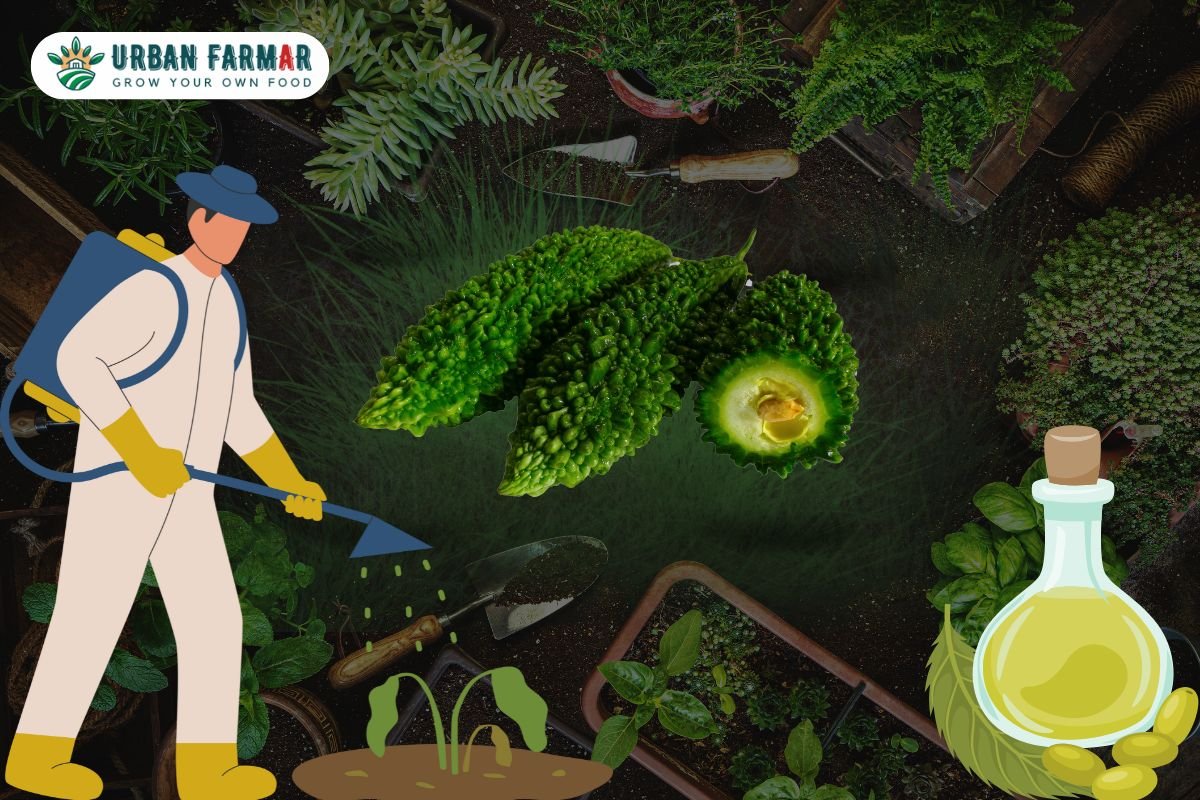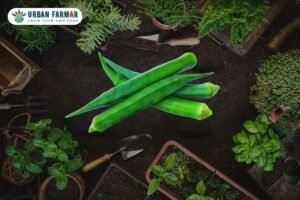Bitter Gourd, or Karela, is a beloved vegetable in Indian households, known for its unique bitter taste and medicinal properties. Growing it at home can be a rewarding experience, but gardeners often encounter challenges. In this guide, we’ll explore the most common issues faced when cultivating Bitter Gourd and provide effective solutions to ensure a bountiful harvest.
1. Poor Germination Rate
The Challenge:
- Seeds may fail to germinate or show slow growth, often due to incorrect planting depth, old seeds, or unfavorable soil conditions.
The Solution:
- Soak seeds in warm water for 24 hours before planting to soften the outer coat.
- Ensure soil is well-draining, rich in organic matter, and slightly acidic (pH 6.0-6.7).
- Plant seeds 1 inch deep and cover lightly with soil.
2. Pest Infestations
The Challenge:
- Common pests include aphids, whiteflies, and fruit flies that damage leaves, flowers, and fruits.
The Solution:
- Use neem oil spray every 7-10 days as a preventive measure.
- Introduce beneficial insects like ladybugs and lacewings.
- Handpick pests and use yellow sticky traps to monitor infestations.
3. Powdery Mildew and Fungal Diseases
The Challenge:
- Powdery mildew appears as a white powder on leaves, affecting photosynthesis and fruiting.
- Root rot and other fungal diseases can also occur due to waterlogged soil.
The Solution:
- Ensure proper spacing for airflow and sunlight.
- Water plants early in the day to allow leaves to dry.
- Apply sulfur or a homemade baking soda spray (1 tsp baking soda, 1 quart water) to combat mildew.
4. Fruit Drop and Poor Fruit Set
The Challenge:
- Premature fruit drop and poor fruit set are often due to inadequate pollination or stress factors.
The Solution:
- Hand pollinate flowers using a small brush if natural pollinators are scarce.
- Avoid overwatering and maintain consistent moisture levels.
5. Yellowing Leaves and Nutrient Deficiency
The Challenge:
- Yellowing leaves can result from nitrogen deficiency, root rot, or water imbalance.
The Solution:
- Feed plants with balanced fertilizers rich in nitrogen, potassium, and phosphorus.
- Add organic compost regularly and use well-draining soil.
FAQs About Growing Bitter Gourd at Home
Why is my Bitter Gourd not producing fruits?
Lack of pollination, nutrient imbalance, or poor sunlight may be the cause.
How do I prevent fruit flies?
Use neem oil spray and wrap developing fruits with protective mesh.
Can Bitter Gourd grow indoors?
It thrives in sunlight; outdoor or terrace gardening is recommended.
Why are my Bitter Gourds bitterer than usual?
Overripe fruits tend to be more bitter. Harvest when young and tender.
CONCLUSION
Growing Bitter Gourd can be challenging, but with proper care and preventive measures, you can overcome these issues and enjoy a healthy, productive harvest. Happy gardening!




